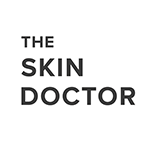What is Acne?
Acne has a huge burden of disease on the individual. Acne is the most common inflammatory skin disease in the world. It can affect any gender at any age regardless of the skin type, however, it is most common in teenagers between the age of 13-17. It is a multifactorial condition, which starts with the hair follicle and oil producing glands on the face, back or chest. These can become infected or blocked, leading to white heads, black heads, pustules or cysts.

What causes Acne?
There are multiple factors that lead to the development of acne
1) Genetic predisposition and family history of acne can predict the severity of the condition.
2) Hormonal changes during puberty or at any point in life including menopause (PCOS, stress, medications, steroid use). These hormonal changes increase androgens which leads to increased production of oil (sebum) in the skin. This oiliness clogs the pores (sebaceous glands) which allows bacteria to grow. This can lead to blocked pores. This causes blocked pores.
3) Individual variation in immune response and inflammation.
4) Inappropriate skincare and cosmetics that are not suitable to the individual’s skin needs and can lead to increased TEWL (trans epidermal water loss) and impaired barrier function causing more inflammation.
Signs and Symptoms
Acne is characterized by multiple types of lesions “pimples”. Initially there are white, black or skin coloured pimples on the skin with or without inflammation/redness There can also be enlarged red bumps and yellow fluid filled pustules. Occasionally, these lesions can be deeper and more inflamed, representing skin cysts. The presence of each time of types of pimples, along with their numbers and distribution determines the type of acne and its severity
Treatments:
– Lifestyle measures alone are helpful but not enough for the treatment of acne
– Avoid highly processed, high sugar food may help in acne management
– Avoid heavy make up and cosmetics, typically mineral makeup options are best
– Use of anti inflammatory skin care without harsh cleansing
– Use of LED light and Laser
– Checking hormonal profile if other symptoms are suggestive of hormonal disturbance
– Treatment of inflammation with topical and oral antibiotics
– Anti-androgen hormonal treatment when appropriate such as the combined contraceptive pill.
– Topical vitamin A can improved blocked pores and the appearance of enlarged pores by increasing cell shedding and turnover
– Oral retinoid
How We can help?
If Acne is not treated appropriately, it can lead to scarring and pigmentation in some cases. It requires a range of interventions and a tailormade plan designed to target the multiple causes of acne that apply in each case. Acne treatment is highly individualised and includes a range of prescription and non-prescription formulations. We have the experience to diagnose acne, decide which type of it you have, and its severity. We formulate a full treatment plan starting from the basics of skin care that is appropriate for you, and incorporating lifestyle measures, and prescription medications both topical and oral when required. Depending on your type of acne, the use of Laser, peels or LED light maybe recommended to improve the condition.
